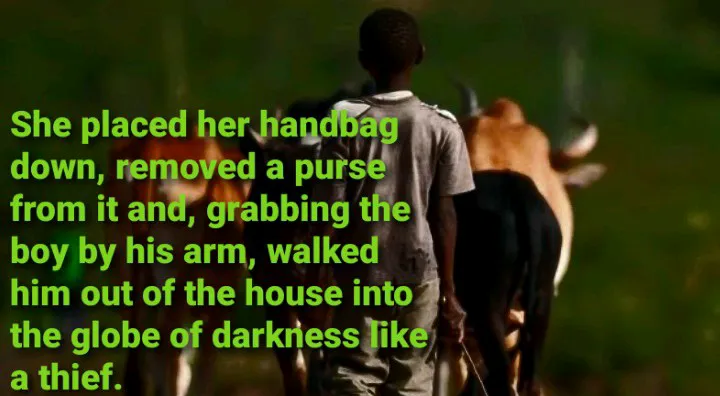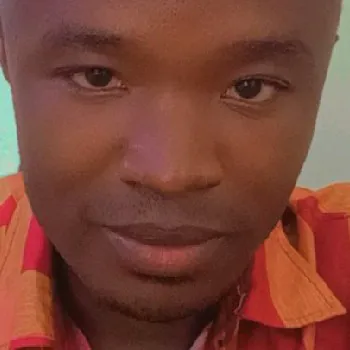Citizens Never Die (Part 2: Persecution)
When he arrived at home with the herd, his cousins who sat in front of their house playing rummy welcomed him with invectives.
“Oh, here comes the vagrant, son of the air,” started Okoth, then he broke into a derisive laughter. “See, an apple doesn’t fall far from the tree, he speaks with the cows and they listen to him. Who else can talk to the animals apart from the free air.” The other two boys cachinnated, but Helena kept quiet and only stared at Odongo with sympathy.
“Sister, don’t be peeved just because he called him a vagrant,” said Omolo, looking at Helena, and then he added with more laughter, “He has no home, no mother, no father... oh my goodness, no grandmother, he is a bastard, can’t you see? We’re doing him all the best by granting him a roof over his head and a floor to lay his ribs.”
“Aaah!” retorted Helena. “Stop! Just stop making fun of our cousin, please. It makes no good.” The boys kept quiet and returned to their game. She was their eldest, the second born in the family, and seemed to have every control over them.
Odongo turned a deaf ear to their talks and led the cattle to their shed. When they heard him talking to a stubborn bull, saying, “Hey, Ogina, leta kichwako hapa (bring your head here)” – the boys laughed again, this time round keeping their laughter a bit suppressed.
Indeed, Odongo always spoke to the cattle and they seemed to pay heed to him. It was a rich long-built understanding that had grown between him and the animals so that they only paid attention to his voice and no one else’s.
When he finished tying the cattle, he said good evening to his cousins and walked into the main house. Only Helena replied to his greeting. She then stood up and followed him into the house. “Odongo, I’m so sorry for what my brothers were saying about you,” she stood behind him and pleaded on behalf of the boys. Her voice was soft and full of affection.
She was also seventeen and a student in form three at a local day school. She had a smooth dark skin and an alluring physique. Her face had a tone of redeemable joy and her eyes full of love.
Odongo turned and looked at her and blushed. “It’s okay, Helena. Thank you,” he managed to say. “They are my brothers and I have nothing against them, you know.” He then looked away from her. “Come,” said Helena, opening her arms wide. He walked into her open arms and she embraced her tight.
For a moment, he forgot his sorrows and felt his life taking a new turn. It was as if his...
“Oh, here comes the vagrant, son of the air,” started Okoth, then he broke into a derisive laughter. “See, an apple doesn’t fall far from the tree, he speaks with the cows and they listen to him. Who else can talk to the animals apart from the free air.” The other two boys cachinnated, but Helena kept quiet and only stared at Odongo with sympathy.
“Sister, don’t be peeved just because he called him a vagrant,” said Omolo, looking at Helena, and then he added with more laughter, “He has no home, no mother, no father... oh my goodness, no grandmother, he is a bastard, can’t you see? We’re doing him all the best by granting him a roof over his head and a floor to lay his ribs.”
“Aaah!” retorted Helena. “Stop! Just stop making fun of our cousin, please. It makes no good.” The boys kept quiet and returned to their game. She was their eldest, the second born in the family, and seemed to have every control over them.
Odongo turned a deaf ear to their talks and led the cattle to their shed. When they heard him talking to a stubborn bull, saying, “Hey, Ogina, leta kichwako hapa (bring your head here)” – the boys laughed again, this time round keeping their laughter a bit suppressed.
Indeed, Odongo always spoke to the cattle and they seemed to pay heed to him. It was a rich long-built understanding that had grown between him and the animals so that they only paid attention to his voice and no one else’s.
When he finished tying the cattle, he said good evening to his cousins and walked into the main house. Only Helena replied to his greeting. She then stood up and followed him into the house. “Odongo, I’m so sorry for what my brothers were saying about you,” she stood behind him and pleaded on behalf of the boys. Her voice was soft and full of affection.
She was also seventeen and a student in form three at a local day school. She had a smooth dark skin and an alluring physique. Her face had a tone of redeemable joy and her eyes full of love.
Odongo turned and looked at her and blushed. “It’s okay, Helena. Thank you,” he managed to say. “They are my brothers and I have nothing against them, you know.” He then looked away from her. “Come,” said Helena, opening her arms wide. He walked into her open arms and she embraced her tight.
For a moment, he forgot his sorrows and felt his life taking a new turn. It was as if his...




